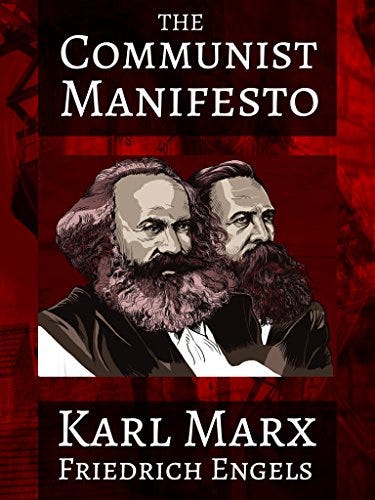Marxism explained in exactly 500 words
Europe was a strange place in the year 1848.
The Industrial Revolution had changed its economic landscape. Democracy was gaining ground against monarchies. Capitalism was beginning to take shape. And scruffy beards were the latest trend in the world of men's fashion.
In this very year, Karl Marx and Friedrich Engels wrote a book that would influence political thought for centuries to come.
As you can tell, that book was 'The Communist Manifesto', and the two men were extremely fashionable.
What is Marxism?
At its core, Marxism is a philosophy that believes in a classless society.
In the ideal Marxist universe, every person works for the common good. There is no exploitation of labor and no dominant state power. The common people are joint owners of all resources.
What prompted the emergence of Marxism?
The Industrial Revolution created a class dichotomy in European society, with the bourgeoisie controlling the means of production and the proletariat providing labor. This led to an unequal distribution of wealth and the exploitation of labor.
Marx was acutely aware of this and became Capitalism's fiercest critic. He criticized it for its instability - with its cyclical booms and busts, and also for the inequality it created among classes.
Marx considered these problems worth solving and devoted his life to detailing his solutions - the most prominent one being The Communist Manifesto.
What do Marxists want?
Good question.
Marxists seek to do to Capitalism what the abolitionists did to slavery - not reform it, but replace it altogether with a system they believe is superior.
For Marxists, that superior system is Communism.
How do Marxists plan to get what they want?
Marx believed that the inter-class conflict created by Capitalism would ultimately lead to a revolution in which the proletariat would overthrow the bourgeoisie.
Marx posited that this revolution would be followed by a brief period of Socialism, as a precursor to Communism. During this period of Socialism, the state would control the means of production, and people would have property rights.
In the final transition to the Marxist Utopia, Marx argued that the proletariat would take collective ownership of the means of production, thereby abolishing class differences. There'd be no religion or government. Production would be based on ability, and consumption would be based on needs.
We'd all live happily ever after as one family.
Has Marxism ever succeeded?
Nope.
Multiple countries have tried, but most failed due to corruption at the interim stage of Socialism. Besides, it has never been a peaceful experiment. Millions have died through violence or starvation at the hands of states that sought to move towards the ideals of Marxism.
Marxism has a noble vision - for humans to retain their humanity while living as one big happy family.
However, that vision fails to consider that familial bonds have limits.
Most people would take a bullet for their kids, siblings, or parents, but I don't know anyone who'd take a bullet for their fourth cousin's husband, whom they've never met.
That’s it for this week.
Next week, I’m going to be exploring how viruses work. Stay tuned!
If you enjoyed this issue, could you do me a favor & hit the like button below?









Can you explain what dopamine is